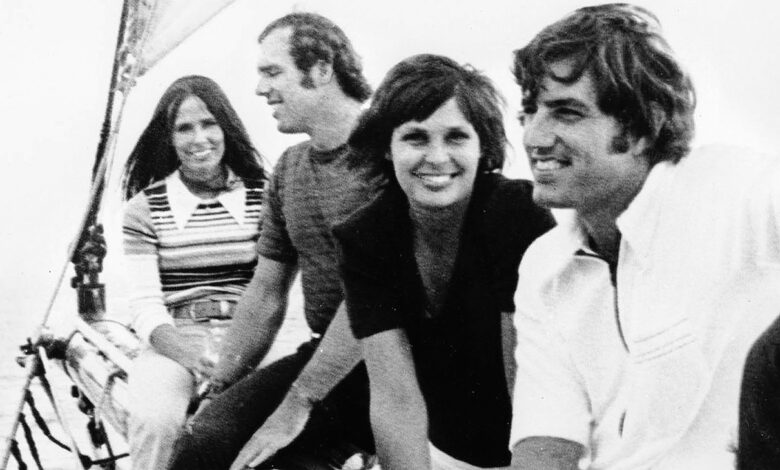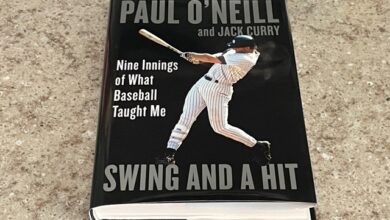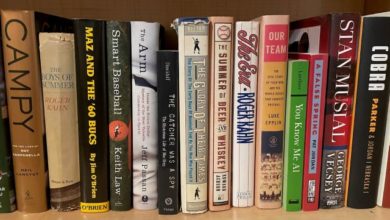
Former Major League pitcher Fritz Peterson, who famously traded families with teammate Mike Kekich in 1973, has passed away. He was 82 years old.
Peterson was a left-hander who pitched from 1966-76 for the New York Yankees, Cleveland Indians and Texas Rangers. He pitched for the Yankees during the “CBS Era,” after the Yankees dynasty had ended and before George Steinbrenner took over. Thus, Peterson never pitched in a postseason game. For their longevity, Peterson, Horace Clarke and Roy White came to symbolize that period, although White would still be around for the 1977 and 1978 World Series championships.
An All-Star in 1970
Peterson had a career record of 133-131 to go with a 3.30 ERA, 1.191 WHIP and a jaw-dropping 3.25 FIP. He jumped straight from double-A to the Yankees in the spring of 1966. Yankees manager Johnny Keane liked the fact that Peterson had high strikeout-to-walk ratios in the minors. Peterson proved to be a durable starter for the Yankees. He made 264 starts for them from 1966-73.
He had his best season in 1970, when he was 20-11 with a 2.90 ERA and had American League-leading ratios for WHIP, walks per nine and strikeouts to walks. He was an All-Star that same year. Entering the All-Sar Game in the bottom of the ninth, he faced one batter, Willie McCovey, who touched him up for a run-scoring double as the National League came from behind to tie the game.
Peterson led the AL with the lowest WHIP twice, lowest walks-per-nine five times and highest strikeout-to-walk ratio twice. He holds the lowest career ERA of any Yankees pitcher in the original Yankee Stadium.
“The Trade”
However, Peterson will always be best known for having traded families with fellow Yankee left-hander Kekich in 1973. They swapped wives, kids and even dogs. Presumably, the families didn’t have to pass through waivers first. The two friends announced the trade in spring training.
Commissioner Bowie Kuhn, speaking at a dinner in Lakeland, said, “I deplore what happened and am appalled at its effect on young people,” but acknowledged he had no authority to make the pitchers go back to their original families. (It did not, as Kuhn feared it would, lead to an epidemic of children swapping wives.) Yankees manager Ralph Houk said it was nobody’s business. He only hoped it didn’t affect their pitching. A Yankees executive remarked, “We may have to call off Family Day this season.”
In announcing the trade, Kekich told Murray Chass of The New York Times, “It wasn’t a wife swap. It was a life swap.” Peterson stressed, “It wasn’t a sex thing.” Peterson told Chass the trade was Kekich’s idea. Kekich preferred a wife with more education, while Peterson was pleased that Susanne Kekich could “do many athletic things.” Peterson felt “henpecked” by Marilyn.
Ultimately, things worked out with Peterson and Susanne, while Kekich and Marilyn Peterson didn’t last long together. Kekich felt misled, believing Marilyn wanted to go along with the swap and that there was an agreement that if anybody was unhappy with the swap, they would return to their original families. Peterson and Susanne married in 1974 and lived happily ever after until Peterson’s death.
The aftermath
The trade affected the friendship between Peterson and Kekich, and as Houk feared, it may have affected their pitching, too. Kekich was traded to the Indians in the middle of the 1973 season. In that same year, booed in every ballpark where he pitched, Peterson slipped to 8-15 with a 3.95 ERA.
After a rough start to the 1974 season, the Yankees traded Peterson and others to the Indians in a deal for Chris Chambliss, Dick Tidrow and Cecil Upshaw. Peterson gave Cleveland a 14-8 season in 1975 and was out of baseball after 1976. Kekich, never a star like Peterson, was out of baseball after 1977. A good pitcher for many years, Peterson will always be the guy who traded families with his teammate Kekich.





